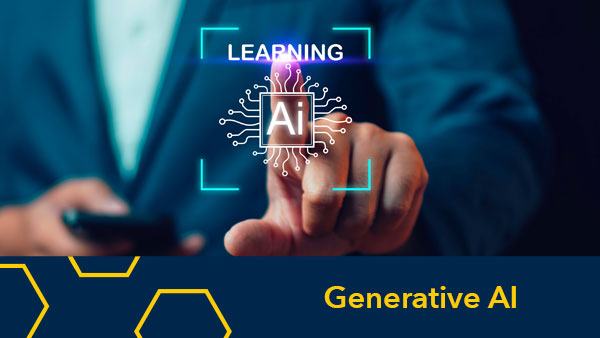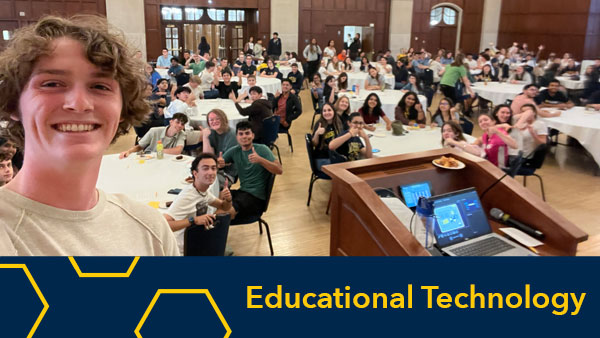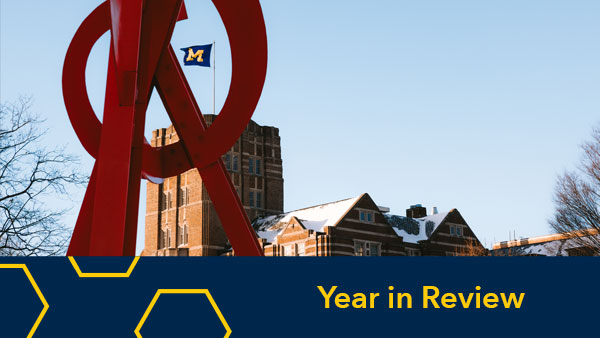Rachel Niemer, Director, Outreach and Access
@rkniemer
Summer is an excellent time for reflection, especially for those of us in education. Recently, all of the Diversity, Equity, & Inclusion (DEI) implementation leads across campus had an opportunity to reflect, as we wrote our annual reports on the progress of our own units toward meeting the strategic objectives put forward three years ago at the launch of the Presidential DEI initiative, while also checking in on the progress of U-M’s campus as a whole towards these goals. As I wrapped up drafting our report and our strategic plan for the coming year, it was notable that, true to our charge to reimagine higher education, this past year included a number of new ventures in the DEI space. We worked to more directly connect our DEI work with the innovation work we do with the broader university community.
To begin experimenting with what that alignment could look like, we co-hosted an event during the diversity summit in October: Social Transformation through Public Engagement. In partnership with the Alumni Association, the National Center for Institutional Diversity, and the Office of Diversity, Equity and Inclusion, a panel discussion and a set of roundtable conversations explored issues at the intersections of academic innovation, diversity, equity and inclusion, and public engagement.
After such a successful experience with Social Transformation through Public Engagement, our DEI strategy group planned a pilot speaker series, Academic Innovation at Michigan for Diversity, Equity and Inclusion (AIM for DEI). We hosted two events that were open to the campus in May 2019 to explore issues at the intersections of DEI, technology, and teaching and learning. Our first event in the series was a presentation from the Detroit Community Technology Project (DCTP). The presenters from DCTP shared striking facts about the lack of access to usable internet access in Detroit, the strategies they have employed to activate community organizations as trusted partners for building an appropriate technical infrastructure in four pilot neighborhoods, and information about how access to information is critical for individuals and neighborhoods to develop and thrive.
The second event featured Bayete Ross-Smith, an artist, filmmaker and educator out of New York City. Mr. Ross-Smith spoke to us about a number of his digital works that were created to help viewers experience, to the best of their abilities, the range of experiences individuals different than the viewer have, across contexts, because of the color and shapes of their bodies, the sounds of their voices, and the stereotypes associated with those features. Art and technology, when combined, give us the possibility of developing empathy through realistic experiences.
Another experiment from this past year was issuing a call for proposals to our Academic Innovation Fund for projects that were motivated by a mission to support diverse learners and create inclusive and equitable learning experiences for pre-college, residential and life-long learners. In an upcoming set of blog posts, I’ll share descriptions of the projects that received support from Academic Innovation as well as reveal some of our plans for the 2019-20 academic year.


